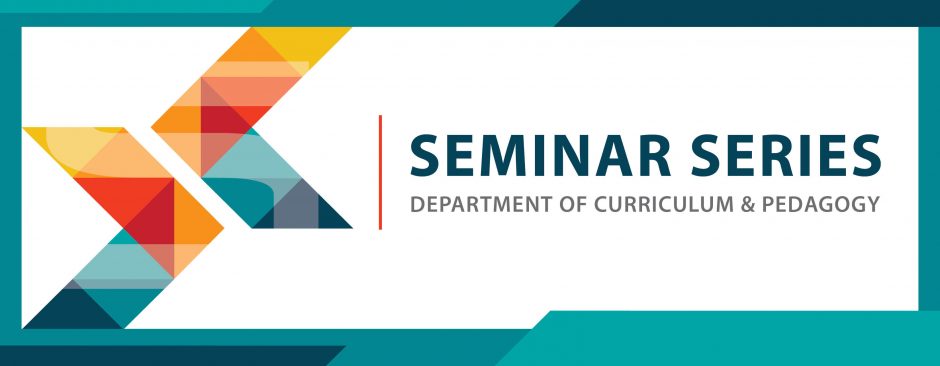
Dr. Anne Phelan, EDCP, UBC
January 9, 2015 | 12:30-2:00 p.m. (PST) | Scarfe 310
View the Seminar Poster
This seminar is part of the 2014-2015 EDCP seminar series “International Perspectives in Curriculum and Pedagogy” hosted by William E. Doll Jr., Donna Trueit and William Pinar.
Abstract:
In an anxious world increasingly perceived in terms of risk management, strategies for mapping and articulating knowledge provide a bulwark against uncertainty. In teacher education, a consequence has been a drive for fullness in relation to knowledge about what teachers should know and be able to do, usually conceived in instrumental terms. Indeed, teacher education, like education more broadly, has been captured by a ‘discursive duopoly’ of instrumentalism, involving the pervasive view that the main purpose of education is to serve the needs of the economy, and consensualism, involving the valorization of agreement regarding this purpose. One way to understand this dynamic in teacher education is in terms of positivity and negativity, whereby the positive refers to social structures, institutions and policies – best practice or teaching standards – that have become reified, while the negative is that which unsettles and disrupts the comfortable stance of the given order of things. Negativity, as a political practice that engages with the positive to reveal the historical and contingent nature of all knowledge, thus offers new conceptual resources, such as dissensus and impotentiality, for imagining alternative scenarios for teacher education beyond the confines of current policies.
Short Bio:
Anne Phelan is a Professor in the Department of Curriculum and Pedagogy at the University of British Columbia. Her research focuses on the intellectual and political freedom of teachers and on the creation of teacher education programs and policies that support that end.